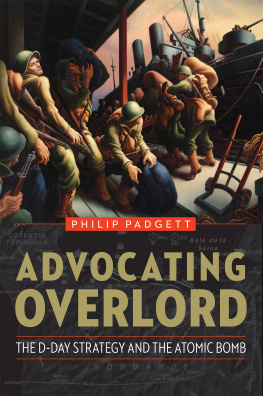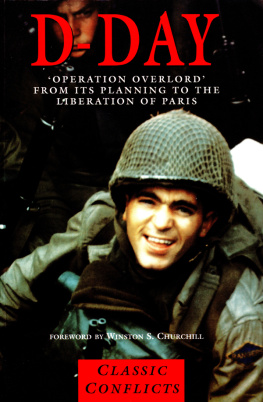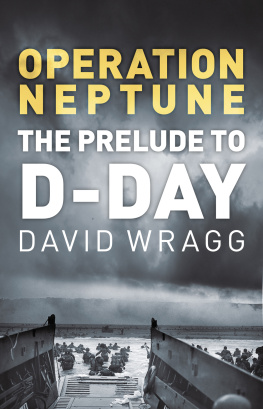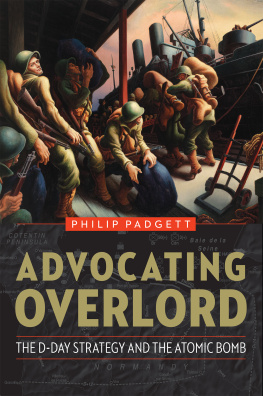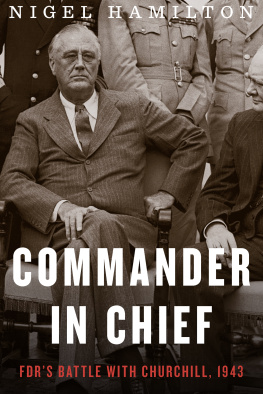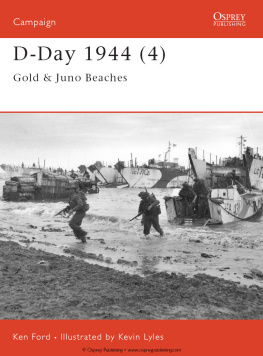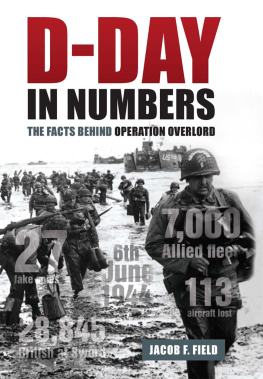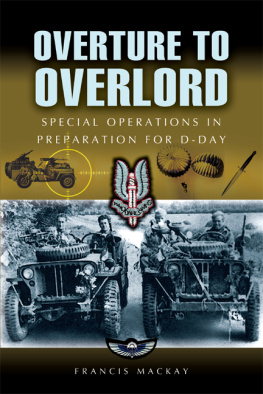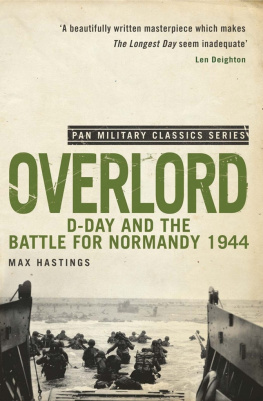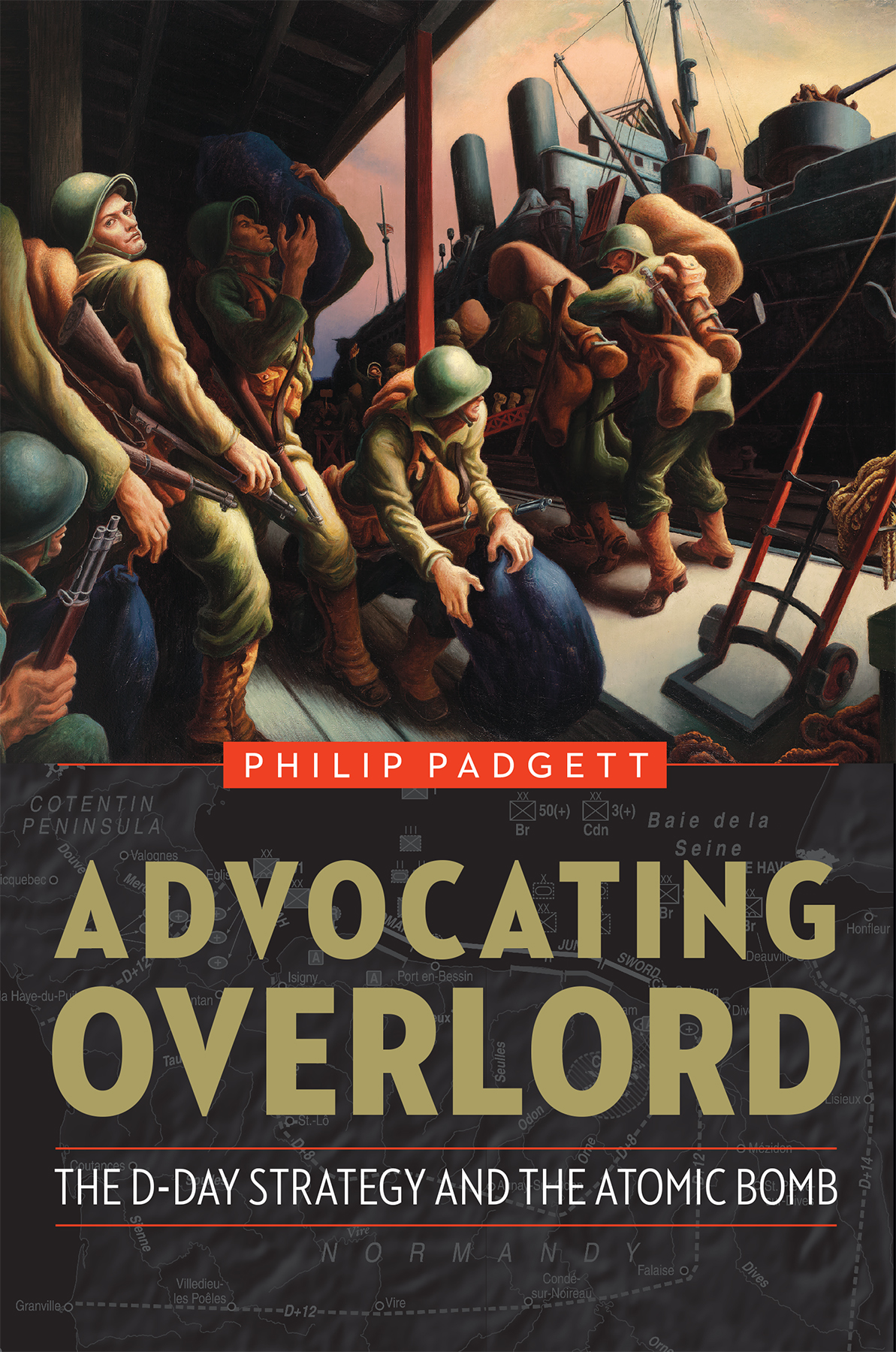
From the very first sentence, this is a gripping tale that illuminates the critical transition from World War II into the Atomic Age. Exhaustively documented, this book is a treasure for the amateur and professional historian alike.
David Wood, Pulitzer Prizewinning journalist
A textual Bayeux Tapestry, Philip Padgetts panorama is a mesmerizing tale of how in 1943 Franklin Roosevelt rebuffed Winston Churchills passion for an exclusively Mediterranean campaign and authorized instead the Anglo-American amphibious assault on Normandy of June 6, 1944, meanwhile limiting British participation in development of the atomic bomb.
Kenneth J. Hagan, professor of history and museum director emeritus at the U.S. Naval Academy
Padgett has provided us with an excellent, extremely insightful study of the pivotal negotiations during 1943 that determined whether and how the fledgling Anglo-American alliance would solidify to make a significant contribution to the defeat of Nazi Germany and go on to provide the basis for post-war western security.
Richard H. Harding, professor of organizational history at the University of Westminster and coeditor of Naval Leadership in the Atlantic World: The Age of Revolution and Reform, 17001850
Even those well versed in the history of the war will find much to ponder here, including the entanglement of Operation Overlord, the American effort to exclude the British from participation in the building of the atomic bomb, and the final transformation of Americas international role, away from hemispheric defense and toward enduring global engagement.
Daniel Moran, professor of international and military history in the Department of National Security Affairs at the U.S. Naval Postgraduate School and coeditor of Maritime Strategy and Global Security
Philip Padgett has provided a novel roadmap for tracing this familiar story. His Advocating Overlord is evocatively written and grounded in authoritative research in British and U.S. sources; it offers an intriguing thesis regarding the nexus of issues that led to Operation Overlord.
Theodore A. Wilson, professor emeritus of history at the University of Kansas
Very well written and very well researched in British and American archival and manuscript materials as well as published works, Philip Padgetts Advocating Overlord provides a detailed analysis of the Anglo-American disagreements over both European strategy and atomic sharing during World War II. In doing so it offers a provocative, fascinating reinterpretation of the relationship between the two disputes.
Mark A. Stoler, editor of the George C. Marshall Papers and professor emeritus of history at the University of Vermont
Advocating Overlord
Advocating Overlord
The D-Day Strategy and the Atomic Bomb
Philip Padgett
Potomac Books
An imprint of the University of Nebraska Press
2018 by Philip Padgett
Cover designed by University of Nebraska Press; cover: detail from Embarkation: Prelude to Death, art T.H. Benton and R.P. Benton Testamentary Trusts/UMP Bank Trustee/licensed by VAGA , New York, NY, and the State Historical Society of Missouri.
Author photo Barbara Glaeser Photography.
All rights reserved. Potomac Books is an imprint of the University of Nebraska Press.
Library of Congress Cataloging-in-Publication Data
Name: Padgett, Philip, author.
Title: Advocating Overlord: the D-Day strategy and the atomic bomb / Philip Padgett.
Description: Lincoln: Potomac Books, an imprint of the University of Nebraska Press, 2018.
Identifiers: LCCN 2017052569
ISBN 9781612349626 (cloth: alk. paper)
ISBN 9781640120488 (epub)
ISBN 9781640120495 (mobi)
ISBN 9781640120501 (web)
Subjects: LCSH : Operation Overlord. | World War, 19391945Diplomatic history. | Atomic bomb.
Classification: LCC D 756.5. N 6 P 33 2018 DDC 940.54/2142dc23 LC record available at https://lccn.loc.gov/2017052569
The publisher does not have any control over and does not assume any responsibility for author or third-party websites or their content.
For Mary and Lauren
In memory of John and Mary Jane
Contents
Photographs
Maps
A3 : early radiotelephone voice encryption system
ASF : Army Service Force
ASW : antisubmarine warfare
AT : troop convoy designation, United States to UK
B -17: four-engine heavy bomber
B -24: four-engine heavy bomber (with transport and maritime patrol variants)
BA : British Army
C -54: four-engine transport aircraft
CBO : Combined Bomber Offensive
CCS : Combined Chiefs of Staff (Allied)
CIGS : Chief of Imperial General Staff (UK)
COS : Chiefs of Staff (UK)
COSSAC : Chief of Staff to Supreme Allied Commander, an organization and an officers title
CVE : escort aircraft carrier
CU : convoy designation, Caribbean to Liverpool
ETOUSA : European Theater of Operations, U.S. Army
HF/DF : high frequency direction
HMS : His Majestys Ship
HX : convoy designation, Halifax (later New York) to Liverpool
HXS : convoy designation, Halifax (later New York) to Liverpool, slow
JCS : Joint Chiefs of Staff (U.S.)
JIC : Joint Intelligence Committee
JPC : Joint Planning Committee (UK)
JSSC : Joint Strategy Survey Committee (U.S.)
JWPC : Joint War Planning Committee (U.S.)
KMF : convoy designation, Firth of Clyde to Mediterranean
MKF : convoy designation, Mediterranean to Firth of Clyde
OKW : Oberkommando der Wehrmacht, German Supreme Command of the Armed Forces
ON : convoy designation, outbound north, Liverpool to Halifax
ONS : convoy designation, outbound north slow, Liverpool to Halifax
OPD : Operations Division (U.S. Army)
OSRD : Office of Scientific Research and Development (U.S.)
RAF : Royal Air Force
RCMP : Royal Canadian Mounted Police
RMS : Royal Mail Ship
RN : Royal Navy
S -1: code name, atomic bomb development, U.S. term equivalent to Tube Alloy
SHAEF : Supreme Headquarters Allied Expeditionary Force
TA : Tube Alloy
TU : fast troop convoy designation, British Isles to United States
USA : U.S. Army
USAAF : U.S. Army Air Force
USAT : U.S. Army Transport
USN : U.S. Navy
USS : United States Ship
USSBS : U.S. Strategic Bombing Survey
UT : fast troop convoy designation, United States to British Isles
VHF : very high frequency
VLR : very long range
WSA : War Shipping Administration
Abraham: code name for Quebec City
Anakim: operation name, Allies proposed invasion of Burma
Arcadia: code name, Allies first conference, Washington
Avalanche: operation name, Allies invasion at Salerno, near Naples, Italy
Bolero: operation name, U.S. buildup in UK
Cockade: operation name, series of 1943 Allied deceptions
D-Day: designated day for Normandy landings, the first phase of Overlord
Enigma: Germanys text encryption machine
Eureka: code name, Allies sixth conference, Tehran
Gold: Normandy beach, British landing point
Gymnast: operation name, Allies North Africa landings; became Torch
Husky: operation name, Allies invasion of Sicily
Jubilee: operation name, raid on Dieppe, France
Juno: Normandy beach, Canadian landing point
Jupiter: operation name, Allies invasion of Norway; not conducted
Manhattan Project: secret U.S. project to develop and produce atomic bomb

